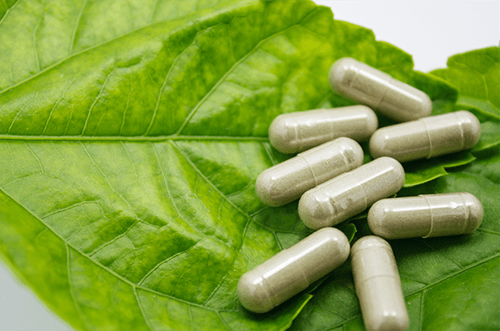Abortifacient Poisoning: Risks of Using Herbal Supplements to Induce Abortion

On today’s social media platforms, there are many videos and posts that discuss abortifacients, specifically “herbs to cause abortion.” Typically, healthcare providers either perform a medical procedure or prescribe medication for abortifacient. However, some individuals may not have access to this care and seek out alternative approaches, such as herbal preparations. You can also read our previous post that provided an overview of this topic.
There is a lack of evidence supporting the safety as well as efficacy of herbal preparations to cause abortion. In general, herbal supplements should only be used under the supervision and consultation of a healthcare provider. There are no FDA-approved herbal remedies recommended for abortion.
Risks and Considerations for Using Herbal Supplements for Abortion
While there are many herbs that have been used as traditional remedies, their use to help induce abortions is dangerous and not recommended because there is a lack of scientific evidence to support the safe and effective use of herbs for abortion.
- Many herbs contain toxins that pose health risks to the individual using the herb.
- Herbal products and supplements are not regulated or approved by the FDA. Their inadequate regulation and quality control lead to unpredictable dosing and toxic effects.
- Attempting an abortion without medical supervision can lead to delayed care for medical complications.
Herbal Preparations for Abortion
Many herbal supplements are known to carry risks to pregnant people, including miscarriage or abortion. However, herbal supplements are not a safe replacement for proper medical care from a qualified healthcare provider. Below are herbs historically used to induce an abortion or known to cause miscarriage and their dangers:
- Pennyroyal (Mentha pulegium): The use of pennyroyal comes with the risk of life-threatening toxicity to the pregnant person. Pennyroyal contains the toxin pulegone which can cause seizures, internal bleeding, and kidney and liver failure in the person taking it. Pennyroyal is not recommended for inducing an abortion.
- Dong Quai (Angelica sinensis): Dong Quai was traditionally used in some cultures for a variety of reasons, including abortion. However, there is not enough scientific evidence to confirm its effectiveness or safety for abortion. Furthermore, Dong Quai has blood thinning properties that can cause increased bleeding. Dong Quai is not recommended for inducing an abortion.
- Rosary Pea or Jequirity Bean (Arbus precatorious): Rosary peas contain the toxin Abrin, which is highly poisonous to cells in the body. Similar to pennyroyal, the use of rosary peas as a means of abortion comes with the risk of life-threatening toxicity to the user. While initial symptoms may include nausea and vomiting symptoms can progress to seizures, coma, and kidney and renal failure. Rosary pea is not recommended for inducing an abortion.
What should I do?
While herbs may have historically been used for abortion, there is no scientific evidence to support the practice of ending a pregnancy using herbal products. Abortion laws vary by state, which can make it difficult for people to access abortion care. However, it is vital to prioritize one’s health and well-being by seeking evidence-based, compassionate care from a qualified healthcare provider who can consider your individual circumstances and health history. A professional can help you understand the potential risks, benefits, and side effects associated with any course of action related to an abortion.
Poison Help is here to answer your questions preventatively OR after you have consumed herbs and are experiencing symptoms.
Call Poison Help at 1-800-222-1222 to reach your local poison control center or find your regional poison control center and chat with a poison control expert at PoisonHelp.org.